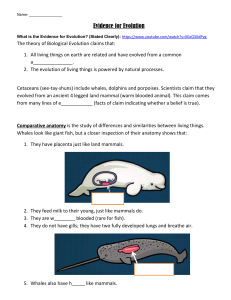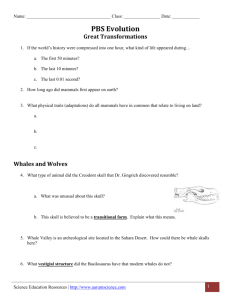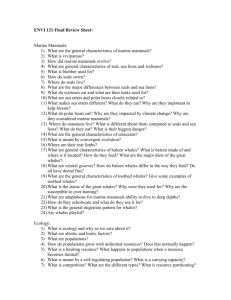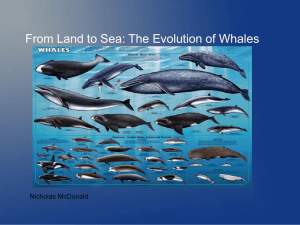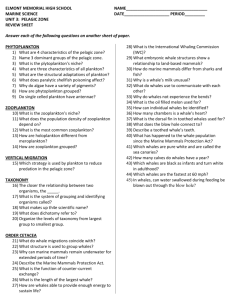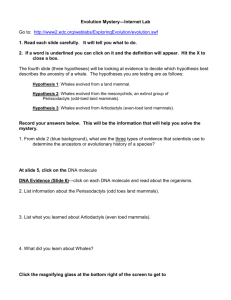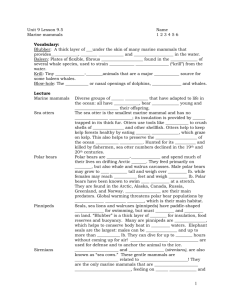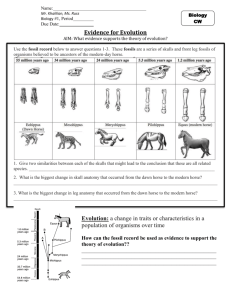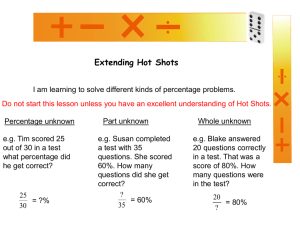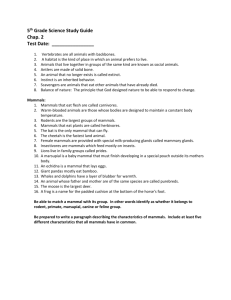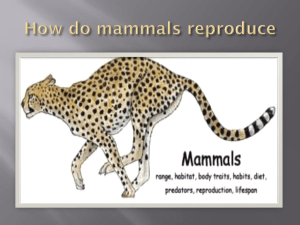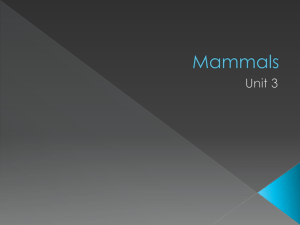Webquest: Whale Evolution
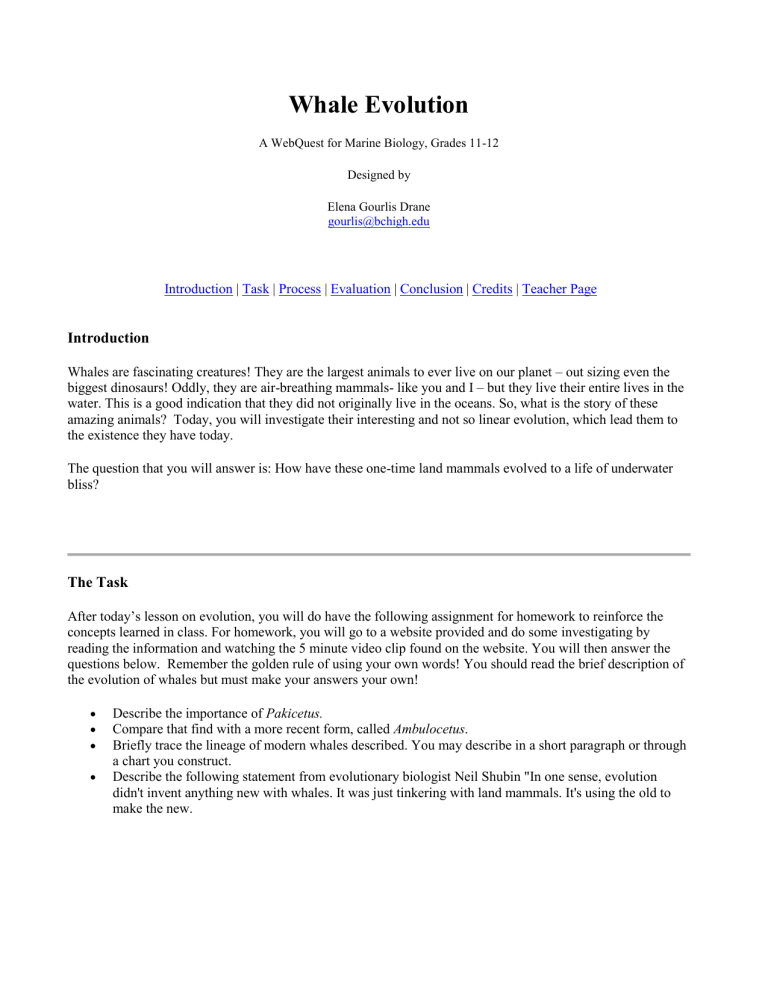
Whale Evolution
A WebQuest for Marine Biology, Grades 11-12
Designed by
Elena Gourlis Drane gourlis@bchigh.edu
| Process | Evaluation | Conclusion
Introduction
Whales are fascinating creatures! They are the largest animals to ever live on our planet – out sizing even the biggest dinosaurs! Oddly, they are air-breathing mammals- like you and I – but they live their entire lives in the water. This is a good indication that they did not originally live in the oceans. So, what is the story of these amazing animals? Today, you will investigate their interesting and not so linear evolution, which lead them to the existence they have today.
The question that you will answer is: How have these one-time land mammals evolved to a life of underwater bliss?
The Task
After today’s lesson on evolution, you will do have the following assignment for homework to reinforce the concepts learned in class. For homework, you will go to a website provided and do some investigating by reading the information and watching the 5 minute video clip found on the website. You will then answer the questions below. Remember the golden rule of using your own words! You should read the brief description of the evolution of whales but must make your answers your own!
Describe the importance of Pakicetus.
Compare that find with a more recent form, called Ambulocetus .
Briefly trace the lineage of modern whales described. You may describe in a short paragraph or through a chart you construct.
Describe the following statement from evolutionary biologist Neil Shubin "In one sense, evolution didn't invent anything new with whales. It was just tinkering with land mammals. It's using the old to make the new.
The Process
In class, we covered evolution through natural selection, variation, adaptation, descent through modification, adaptive radiation, and speciation. We have discussed the environmental impact of the evolution of organisms.
Finally, we briefly discussed the evolution of terrestrial mammals . All of the aforementioned concepts should help you in the investigation that follows.
This assignment is on the evolution of Cetaceans to an aquatic life. It is a reinforcement exercise in the unit of
Evolution.
1.
First you'll need to find a computer. You may stay after school and use the computer lab or do the assignment on your home computer.
2.
Second, you will both need to look over the questions being asked.
3.
Third, you will need to read through the website and watch the video clip included.
4.
Finally, you will think about how you want to answer the questions. http://www.pbs.org/wgbh/evolution/library/03/4/l_034_05.html
Read the questions you are to answer first so you know what I am looking for you to answer. Remember here that you need to actively read this short information set. That means you need to have your notebooks next to you in case you come across a word you do not remember. Watch the 5-minute video after you read. Think about the information presented to you and then answer the questions.
Evaluation
The following is a homework assignment. Below is the rubric for this assignment.
Beginning Developing
1 2
Answers to questions stated in his own words.
1 of the 4 questions is answered thoroughly and correctly.
2 of the 4 questions are answered thoroughly and correctly.
Conclusion
Accomplished Exemplary
3 4
3 of the 4 stated questions are answered thoroughly and correctly.
All 4 of the stated questions are answered thoroughly and correctly.
Score
We have discussed some of the major concepts of evolution. You have a general idea of how aquatic mammals such as whales evolved from land mammals. This is but one example in many of the interesting and unusual way that evolution can change organisms.
Credits & References
The following website is used in this assignment: http://www.pbs.org/wgbh/evolution/library/03/4/l_034_05.html
It is from the Public Broadcasting system website and has excellent resources for teachers! There are many components to this Evolution website that addressed a number of different topics in evolution. There are also a number of lessons plans in the Teachers&
Students section. Additionally, there are several videos available.
Last updated on August 15, 1999. Based on a template from The WebQuest Page
